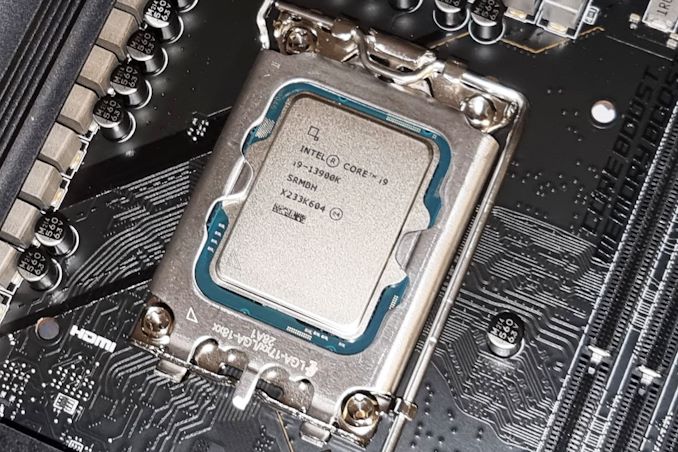For the Consumer
Fastest Intel CPU in 2003 - Pentium 4 EE @ 3.2 GHz (130 nm / 1 core and 2 threads / 3.2 GHz)
Fastest Intel CPU in 2013 - Core i7-4960X (22 nm / 6 cores and 12 threads / up to 4.0 GHz)
Fastest Intel CPU in 2023 - Core i9-13900KS (10 nm / 24 cores and 32 threads / up to 6.0 GHz)
For all whom it may concern, the vivid portrayal of specifications and the boldened adhering numerals would denote an inclining and definitive stature of processing power through the span of twenty years. By 2013, the aforementioned Pentium 4 Extreme Edition was already majorly outdated, whilst the Core i7-4960X would still prove benefactory in many spheres, threading along nicely in the pathways of innumerable users and performing swiftly numerous daunting tasks, today.
Do you think that the Core i9-13900KS would meet the same fate as the Core i7-4960X ten years from now? What would these specifications look like in ten or twenty years from now?
It is all subjective and objective and nobody may surely know. But let me know what you think and what your innermost convictions and predictions would be. It is not about accuracy, it's about the joy and exhilaration of finding novelty and sharing versatile opinion.
Do write up and
Thank you!
PS. I hope I may be forgiven for the desolate inclusion of Intel CPUs only and would like to reassure the persons responding to and reading this thread that all predictions and communication connected with the AMD counterpart would be greatly appreciated.
Fastest Intel CPU in 2003 - Pentium 4 EE @ 3.2 GHz (130 nm / 1 core and 2 threads / 3.2 GHz)
Fastest Intel CPU in 2013 - Core i7-4960X (22 nm / 6 cores and 12 threads / up to 4.0 GHz)
Fastest Intel CPU in 2023 - Core i9-13900KS (10 nm / 24 cores and 32 threads / up to 6.0 GHz)
For all whom it may concern, the vivid portrayal of specifications and the boldened adhering numerals would denote an inclining and definitive stature of processing power through the span of twenty years. By 2013, the aforementioned Pentium 4 Extreme Edition was already majorly outdated, whilst the Core i7-4960X would still prove benefactory in many spheres, threading along nicely in the pathways of innumerable users and performing swiftly numerous daunting tasks, today.
Do you think that the Core i9-13900KS would meet the same fate as the Core i7-4960X ten years from now? What would these specifications look like in ten or twenty years from now?
It is all subjective and objective and nobody may surely know. But let me know what you think and what your innermost convictions and predictions would be. It is not about accuracy, it's about the joy and exhilaration of finding novelty and sharing versatile opinion.
Do write up and
Thank you!
PS. I hope I may be forgiven for the desolate inclusion of Intel CPUs only and would like to reassure the persons responding to and reading this thread that all predictions and communication connected with the AMD counterpart would be greatly appreciated.



